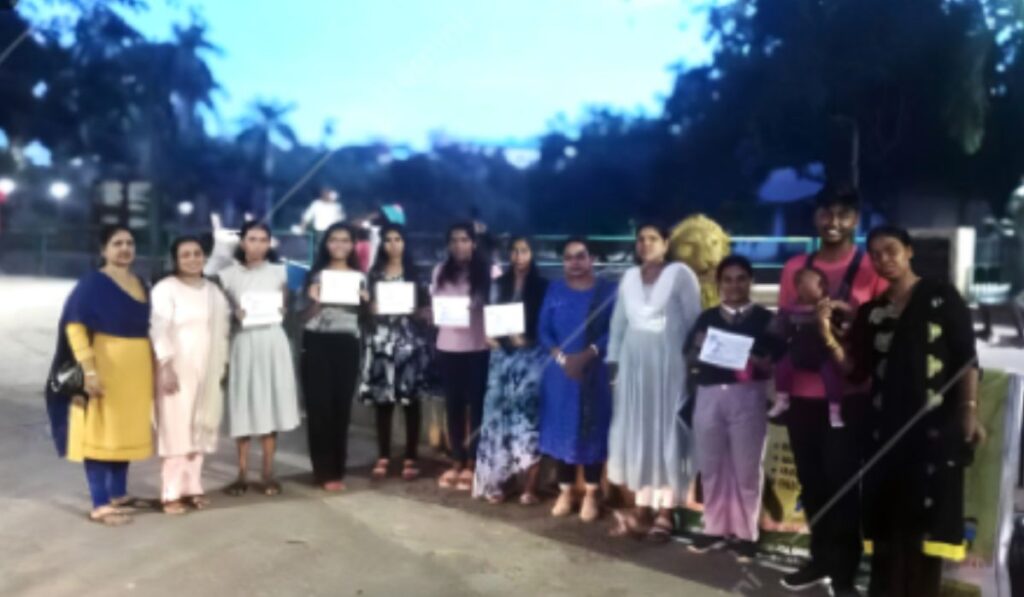Tarun Karthick
Port Blair, 22 May 2024
Directorate of Social Welfare recently held a significant awareness program at Gandhi Park to educate the public and children about the crucial services provided by Child Helpline 1098. The initiative, aimed at fostering a safer environment for children, featured key insights from Dr. Nitin Shakya, Director of Social Welfare, and Ms. Beena Das, Helpline Administrator.
Dr. Shakya emphasised the necessity of timely and adequate assistance for children, highlighting the role of society in being vigilant and responsive. “The Child Helpline 1098 is a significant step towards creating a safer environment for every child. Empowered and educated community members are fundamental in bringing about this change,” he stated.
The event was inaugurated by Ms. Das, who provided a comprehensive overview of the helpline’s services, emphasising its role in safeguarding children’s welfare. She outlined four key aspects of Child Helpline 1098:
1. 24/7 Availability: The helpline operates round the clock, ensuring that assistance is always available whenever a child is in need.
2. Comprehensive Support Services: It offers a wide range of services, including counselling, emergency response, and rehabilitation for children facing abuse, neglect, or other forms of distress.
3. Accessibility: The helpline is toll-free and easily reachable, making it a lifeline for children and concerned individuals across the country.
4. Confidentiality: The service ensures the privacy and confidentiality of callers, creating a safe space for children to seek help without fear of repercussions.
The awareness program also featured an informative session detailing the extensive range of services provided by Child Helpline 1098. Participants were given a demonstration of the Women and Child Development (WCD) Control Room and the CHL-1098 operations, showcasing the helpline’s continuous, year-round availability.
By raising awareness about Child Helpline 1098, the Directorate of Social Welfare aims to create a more informed and responsive community. The program is a step towards building a nurturing environment for children, ensuring they have access to the support and protection they need.

